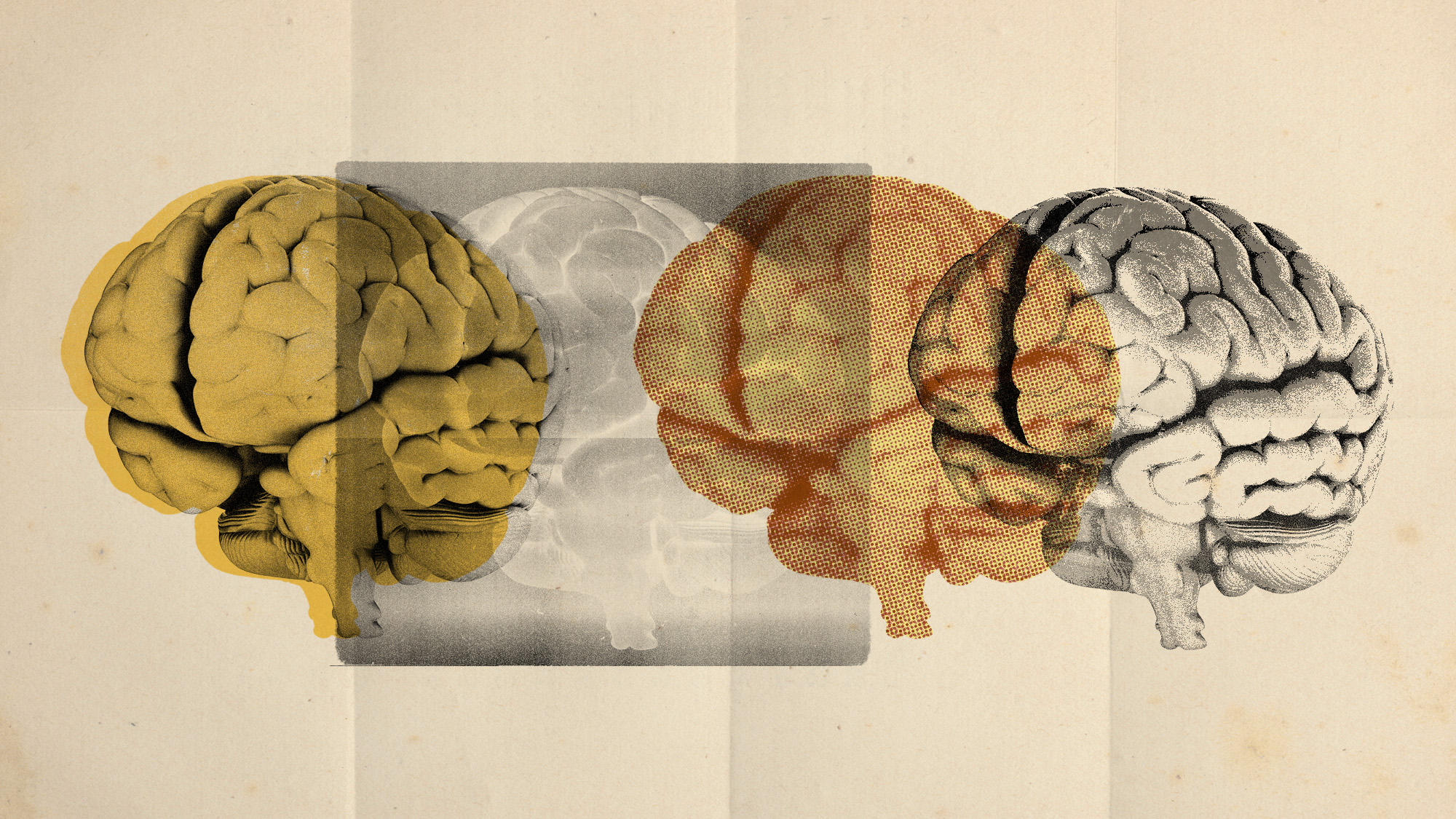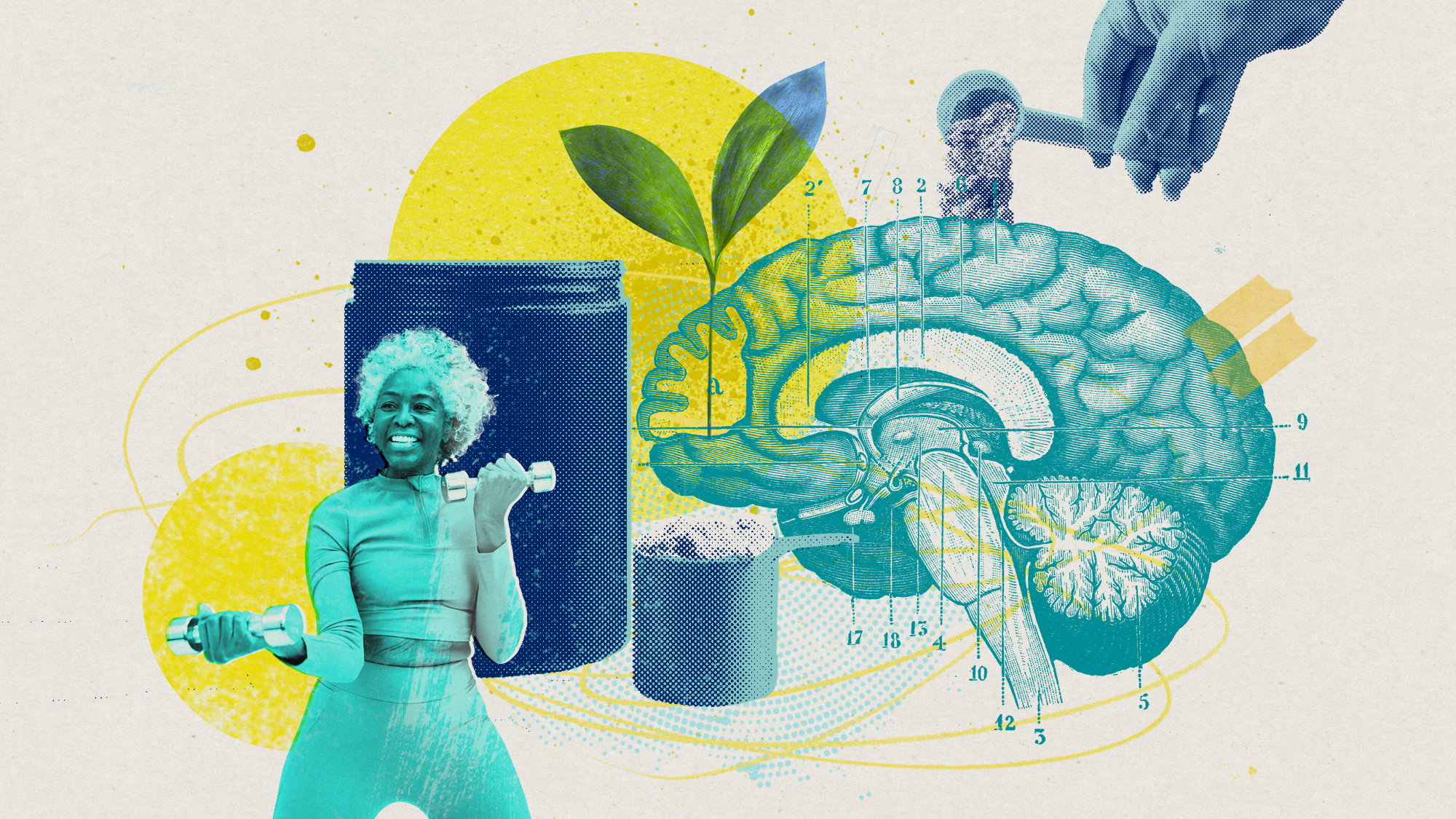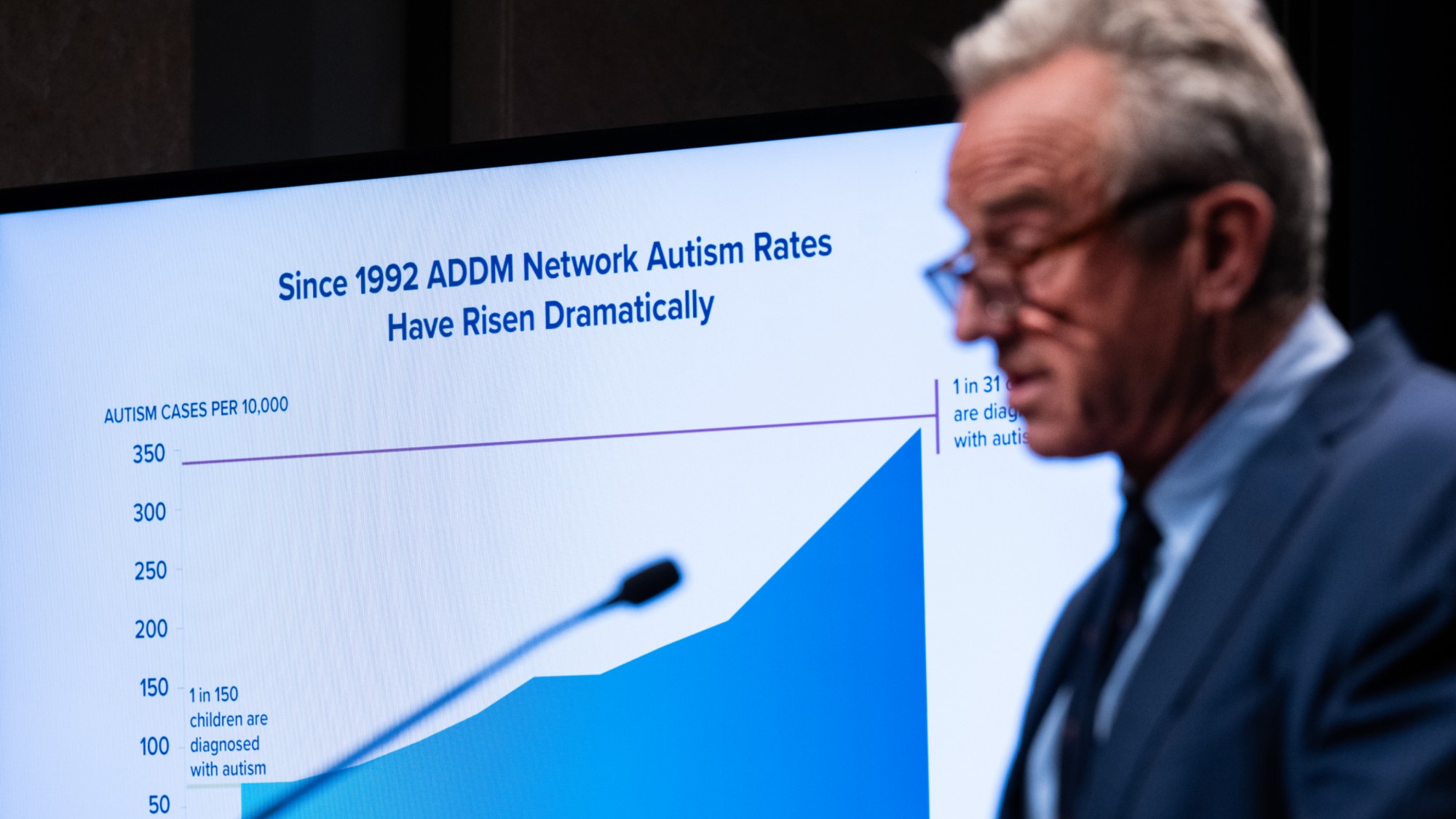Why people with anxiety struggle to manage their emotions
Simple actions can help people loosen the influence of negative thoughts

A free daily email with the biggest news stories of the day – and the best features from TheWeek.com
You are now subscribed
Your newsletter sign-up was successful
Regulating our emotions is something we all do, every day of our lives. This psychological process means that we can manage how we feel and express emotions in the face of whatever situation may arise.
But some people cannot regulate their emotions effectively, and so experience difficult and intense feelings, often partaking in behaviours such as self-harm, using alcohol, and over-eating to try to escape them.
There are several strategies that we use to regulate emotions – for example, reappraisal (changing how you feel about something) and attentional deployment (redirecting your attention away from something). Underlying neural systems in the brain’s prefrontal cortex are responsible for these strategies. However, dysfunction of these neural mechanisms can mean that a person is unable to manage their emotions effectively.
The Week
Escape your echo chamber. Get the facts behind the news, plus analysis from multiple perspectives.

Sign up for The Week's Free Newsletters
From our morning news briefing to a weekly Good News Newsletter, get the best of The Week delivered directly to your inbox.
From our morning news briefing to a weekly Good News Newsletter, get the best of The Week delivered directly to your inbox.
Emotion dysregulation does not simply occur when the brain neglects to use regulation strategies. It includes unsuccessful attempts by the brain to reduce unwanted emotions, as well as the counterproductive use of strategies that have a cost that outweighs the short term benefits of easing an intense emotion. For example, avoiding anxiety by not opening bills might make someone feel better in the short term, but comes with the long-term cost of ever increasing charges.
These unsuccessful attempts at regulation and counterproductive use of strategies are a core feature of many mental health conditions, including anxiety and mood disorders. But there is not one simple pathway that causes the dysregulation in these conditions. In fact research has found several causes.
1. Dysfunctional neural systems
In anxiety disorders, dysfunction of the brain’s emotional systems is related to emotional responses being of a much higher intensity than usual, along with an increased perception of threat and a negative view of the world. These characteristics influence how effective emotion regulation strategies are, and result in an over-reliance on maladaptive strategies like avoiding or trying to suppress emotions.
A free daily email with the biggest news stories of the day – and the best features from TheWeek.com
In the brains of those with anxiety disorders, the system supporting the reappraisal does not work as effectively. Parts of the prefrontal cortex show less activation when this strategy is used, compared to non-anxious people. In fact, the higher the levels of anxiety symptoms, the less activation is seen in these brain areas. This means that the more intense the symptoms, the less they are able to reappraise.

Similarly, those with major depressive disorder (MDD) – the inability to regulate or repair emotions, resulting in prolonged episodes of low mood – struggle to use cognitive control to manage negative emotions and decrease emotional intensity. This is due to neurobiological differences, such as decreased density of grey matter, and reduced volume in the brain’s prefrontal cortex. During emotion regulation tasks, people who have depression show less brain activation and metabolism in this area.
People with MDD sometimes show less effective function in the brain’s motivation systems – a network of neural connections from the ventral striatum, located in the middle of the brain, and prefrontal cortex – too. This might explain their difficulty in regulating positive emotions (known as anhedonia) leading to a lack of pleasure and motivation for life.
2. Less effective strategies
There is little doubt that people have different abilities in using different regulation strategies. But for some they simply don’t work as well. It’s possible that people with anxiety disorders find reappraisal a less effective strategy because their attentional bias means they involuntarily pay more attention towards negative and threatening information. This can stop them from being able to come up with more positive meanings for a situation – a key aspect of reappraisal.
It’s possible that reappraisal doesn’t work as well for people with mood disorders either. Cognitive biases can lead people with MDD to interpret situations as being more negative, and make it difficult to think more positive thoughts.
3. Maladaptive strategies
Although maladaptive strategies might make people feel better in the short term they come with long term costs of maintaining anxiety and mood disorders. Anxious people rely more on maladaptive strategies like suppression (trying to inhibit or hide emotional responses), and less on adaptive strategies like reappraisal. Though research into this is ongoing, it’s thought that during intense emotional experiences these people find it very difficult to disengage – a necessary first step in reappraisal – so they turn to maladaptaive suppression instead.
The use of maladaptive strategies like suppression and rumination (where people have repetitive negative and self-depreciating thoughts) is also a common feature of MDD. These, together with difficulties using adaptive strategies like reappraisal, prolong and exacerbate depressed mood. It means that people who have MDD are even less able to use reappraisal during a depressed episode.
It’s important to note that mood disorders don’t just come from neural abnormalities. The research suggests that a combination of brain physiology, psychological and environmental factors are what contributes to the disorders, and their maintenance.
While researchers are pursing promising new treatments, simple actions can help people loosen the influence of negative thoughts and emotions on mood. Positive activities like expressing gratitude, sharing kindness, and reflecting on character strengths really do help.
Leanne Rowlands, PhD Researcher in neuropsychology, Bangor University
This article is republished from The Conversation under a Creative Commons licence. Read the original article.
-
 Political cartoons for February 20
Political cartoons for February 20Cartoons Friday’s political cartoons include just the ice, winter games, and more
-
 Sepsis ‘breakthrough’: the world’s first targeted treatment?
Sepsis ‘breakthrough’: the world’s first targeted treatment?The Explainer New drug could reverse effects of sepsis, rather than trying to treat infection with antibiotics
-
 James Van Der Beek obituary: fresh-faced Dawson’s Creek star
James Van Der Beek obituary: fresh-faced Dawson’s Creek starIn The Spotlight Van Der Beek fronted one of the most successful teen dramas of the 90s – but his Dawson fame proved a double-edged sword
-
 ‘Longevity fixation syndrome’: the allure of eternal youth
‘Longevity fixation syndrome’: the allure of eternal youthIn The Spotlight Obsession with beating biological clock identified as damaging new addiction
-
 RFK Jr. sets his sights on linking antidepressants to mass violence
RFK Jr. sets his sights on linking antidepressants to mass violenceThe Explainer The health secretary’s crusade to Make America Healthy Again has vital mental health medications on the agenda
-
 The app tackling porn addiction
The app tackling porn addictionUnder the Radar Blending behavioural science with cutting-edge technology, Quittr is part of a growing abstinence movement among men focused on self-improvement
-
 Scientists have identified 4 distinct autism subtypes
Scientists have identified 4 distinct autism subtypesUnder the radar They could lead to more accurate diagnosis and care
-
 'Poo pills' and the war on superbugs
'Poo pills' and the war on superbugsThe Explainer Antimicrobial resistance is causing millions of deaths. Could a faeces-filled pill change all that?
-
 'Wonder drug': the potential health benefits of creatine
'Wonder drug': the potential health benefits of creatineThe Explainer Popular fitness supplement shows promise in easing symptoms of everything from depression to menopause and could even help prevent Alzheimer's
-
 Fly like a breeze with these 5 tips to help cope with air travel anxiety
Fly like a breeze with these 5 tips to help cope with air travel anxietyThe Week Recommends You can soothe your nervousness about flying before boarding the plane
-
 RFK Jr.'s focus on autism draws the ire of researchers
RFK Jr.'s focus on autism draws the ire of researchersIn the Spotlight Many of Kennedy's assertions have been condemned by experts and advocates